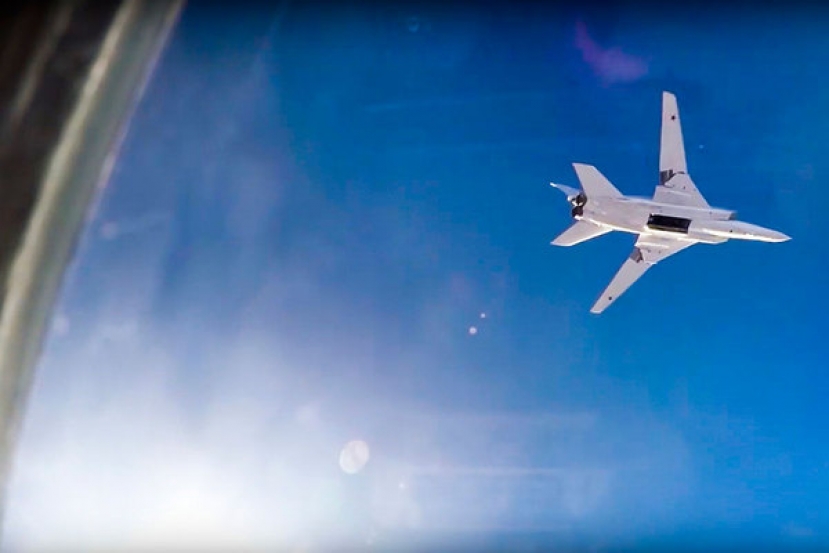One year on, Russia's war in Syria is hardly the predicted 'quagmire'
27.08.2016 10:27
 One year on, Russia's war in Syria is hardly the predicted 'quagmire'
One year on, Russia's war in Syria is hardly the predicted 'quagmire'
US interventions in Iraq and Afghanistan got bogged down by ambitious goals. In Syria, Russia has kept it simple and is gaining in influence in the region because of it.
When Russian President Vladimir Putin sent his forces to the rescue of Syria's Bashar al-Assad a year ago, President Obama predicted that the Russians would end up trapped in a “quagmire.”
Today, Russia hardly appears to be bogged down and instead has reestablished itself as a power in the Middle East.
Russian bombers and special forces have solidified President Assad's hold on Syria, making it possible for him to retake parts of the country once considered irretrievably lost to opposition forces, including moderate rebels armed by the Central Intelligence Agency.
Beyond that, Russia has consolidated its status in the region, gaining influence in Iran and Turkey – and even Saudi Arabia and Israel.
“Everyone understands there’s been a significant adjustment in the Middle East, that the Russians once again are players and you have to take them into account,” says Nicolas Gvosdev, a Russia expert at the Naval War College in Newport, R.I. “Putin aimed to put Russia back at the forefront of regional calculations, and at this point he’s achieved that.”
Earlier this month, Iran granted Russia access to its Nojeh air base to carry out its air campaign in Syria. That access was suspended “for now,” Russian officials announced Monday, but it nevertheless constituted the first time the Islamic republic had ever accepted foreign forces on Iranian soil. It was a concession beyond anything the Shah ever granted the United States.
As for Turkey, President Recep Tayyip Erdogan recently traveled to Moscow to meet with Mr. Putin and mend ties that had frayed over Russia’s support for Assad.
“Without Russia’s contribution, there cannot be a permanent solution in Syria,” Turkish Foreign Minister Mevlut Cavusoglu told the Russian Sputnik News Agency Thursday.
Filling a vacuum
Russia’s return to prominence in the Middle East corresponds with an intentional “rebalancing” under Mr. Obama, shifting American focus and assets away from the region and toward Asia. That rebalancing has opened the way for other powers – first among them Russia – to gain clout in an area where the US had reigned unchallenged for decades.
With the use of Iranian air bases “the Russians now have strategic aircraft flying over the Persian Gulf,” Dr. Gvosdev says. “It’s no longer a zone of exclusive American operation.”
Yet for all Russia and Putin appear to have gained from the Syria intervention, it has not been cost-free – and might yet prove more costly, some experts say.
“What happens if [the Russians] can’t totally leave Syria?” says Paul Stronski, a senior associate in the Russia and Eurasia Program at the Carnegie Endowment for International Peace in Washington. “If they find they can’t pick up and leave but have to stay engaged [in Syria] to keep what they’ve achieved, at what point does it become a quagmire?”
And all the downsides are not hypothetical, Dr. Stronski adds.
“The intervention put a target on Russia,” he says, pointing to the terrorist attack that downed a Russian commercial jet over Egypt’s Sinai last year, killing 224 people, mostly Russian tourists.
He also cites the “horrific plight of the Syrian people that has certainly worsened over the year of the Russian bombing campaign.” Russian officials have been “very careful” with how (or whether) the humanitarian downsides of the intervention have been presented in Russia.
A lesson for the US?
Russia has been able to reassert itself in the region patly because it set out limited goals – something the US might consider taking a cue from, Gvosdev says.
“Where the Americans might have gone in ... with the aim of ending the war followed by grandiose plans for nation-building, the Russians set a relatively low bar which was to prevent Assad from falling and to reestablish [the regime’s] positions in parts of the country,” he says. “The message is that when you set limited goals and achieve them, it’s a victory. But when you set lofty goals and offer an expansive vision of what you’re going to achieve,” he adds, “when you don’t do it all people say you failed.”
The limited goals, however, are part of a much broader vision for Russia’s presence in the Middle East.
Turkey and Iran are key elements of Russian plans to boost energy sales – west through Turkey to Europe without going through Ukraine, and east through Iran to India and other South Asian markets.
The bombing runs from Iran allowed Russia to showcase its bombers and other armaments to a hungry regional arms market.
“I have no doubt that’s part of it. We’re going to see the Russians use this campaign to try to entice other states in the Middle East to buy its arms,” Stronski says.
Perhaps the biggest factor in Putin’s calculations has been how it all plays out at home, Stronski says.
“A lot of this has to do with influencing the Russian domestic sphere,” he says.
Russia will hold parliamentary elections next month, which will be crucial to Putin. The Russian leader is carefully tailoring the image Russians receive, Stronski adds.
“The message is that Russia under Putin is a loyal ally,” he says. Rescuing Assad and renewing ties with regional powers presents the reassuring picture, Stronski says, “of a Russia that is a strong and effective support to friends.”
